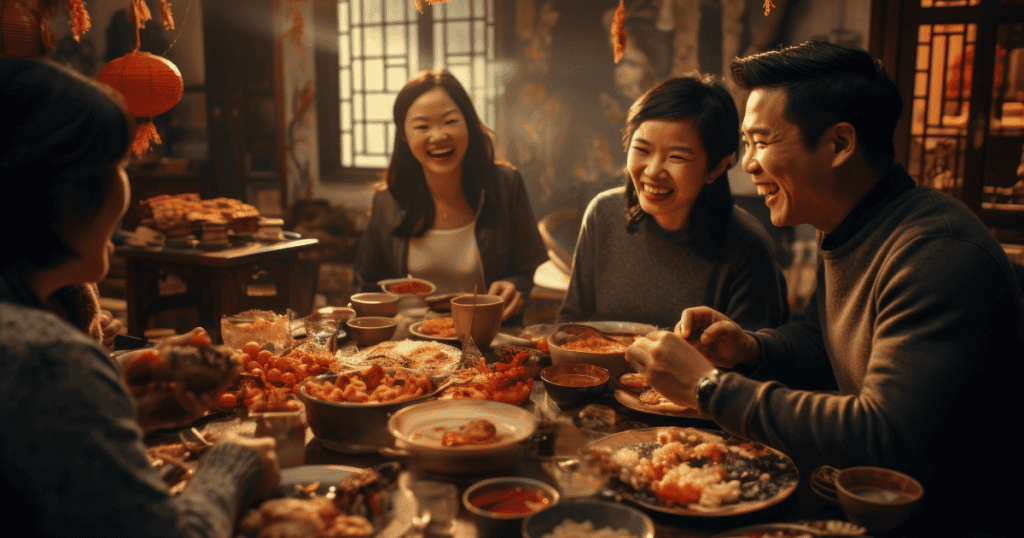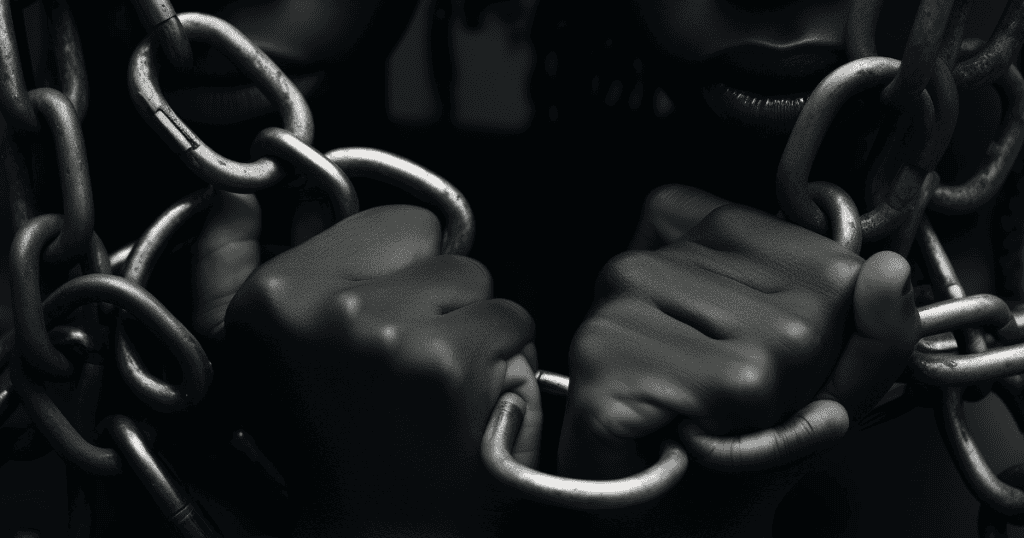They told us forgiveness meant opening the door again. But that lie kept me trapped for years.
I remember the day I finally forgave my mother after years of chaos.
I had convinced myself that forgiveness meant she deserved another chance to be in my life. So I let her back in.
At first, I felt relief. Maybe this time would be different.
But within weeks, the old patterns returned.
The silent treatments when I didn’t obey, the backhanded comments about my choices, the guilt trips slipped into conversations like poison.
All the progress I had made, my boundaries, my confidence, my fragile sense of peace, vanished overnight.
That moment taught me something no church sermon or family advice ever did.
Forgiveness and reconciliation are not the same thing.
Forgiveness happens inside of you. Reconciliation happens outside of you.
And with narcissists, reconciliation is not a bridge to healing. It’s a trapdoor back into chaos.
This conversation is important for survivors who’ve shouldered generations of dysfunction.
We’ve been taught that forgiveness and reunion must go hand in hand.
That if we don’t open the door again, we’re cold, bitter, or “not healed yet.”
But the truth is, forgiveness belongs to you, while reconciliation is a choice.
Table of Contents
The Forgiveness Myth That Keeps Survivors Trapped

From childhood, many of us were raised with the mantra “forgive and forget.”
It was spoken like gospel, especially when it came to family.
But the word “forget” was never meant as a real release. It was used to erase accountability.
I can’t count the times relatives told me, “She’s your mother. You only get one. Forgive her and move on.”
But what they really meant was, “Stop making us uncomfortable with your boundaries.”
This script is cultural, but it’s also tactical. Narcissists exploit it because it gives them automatic access without accountability.
They know the pressure button to push. “If you really forgave me, you’d let me back in.”
If you don’t comply, you’re cast as the problem.
I remember one Christmas when I tried holding my ground with my toxic mother.
She had humiliated me earlier that year in front of extended family, mocking me with that familiar smirk.
I told myself I’d keep my distance. But by December, relatives were already whispering, “It’s Christmas, you need to forgive and forget.”
Against my instincts, I showed up.
By the end of the night, she had twisted the story to make me the villain, and I went home in tears.
In their dictionary, forgiveness meant surrender, not freedom.
And every time I bought into it, I was dragged back into the battlefield.
Forgiveness vs. Reunion

Forgiveness Is Internal Power
Real forgiveness doesn’t need an audience.
It isn’t a grand announcement or a phone call where you bow your head and say, “I forgive you.”
It’s silent. Private. Personal.
I remember one evening sitting in my room after a vicious fight, my chest tight from holding back tears.
I whispered into the dark, “I forgive you.”
Not for my mother.
Not for my toxic siblings.
Not for anyone else’s approval.
For me.
That moment didn’t fix my narcissistic family. It didn’t repair our relationship. But it unshackled me from carrying rage in my body every day.
I stopped rehearsing imaginary comebacks in the shower.
I stopped lying awake, scripting my defense for the next ambush.
Forgiveness gave me breathing space. It gave me back myself.
Reunion Is External Access
Reunion is something entirely different.
Reunion means opening the gates of your life. It means giving them access to your heart, your home, your daily peace.
And with narcissists, that access is dangerous.
I learned this the hard way with my narcissistic sister. I had gone no-contact for months, and I was finally sleeping well again.
Then came the phone call. “She misses you. Don’t be so stubborn. She’s changed.”
Against my better judgment, I agreed to meet her.
Within days, the mockery returned.
She laughed at my boundaries, ridiculed me for being “too sensitive,” and made subtle digs at my marriage.
It was as if no time had passed.
My calm evaporated. My chest tightened again. My mind spun all night replaying her words.
Forgiveness had freed me. Reunion chained me again.
That was the day I drew the line in permanent ink: I can forgive, and still keep the door locked.
The Dangerous Lies About Forgiveness

“If You Don’t Reconcile, You’re Bitter”
When I chose distance, the labels started flying.
“She’s so cold now.”
“She’s holding grudges.”.
“Doesn’t she know bitterness will eat her alive?”
But what they didn’t see was the peace I was building.
For the first time, I wasn’t flinching every time my phone buzzed. My holidays weren’t spent bracing for someone’s cruel joke or insults.
The truth is, bitterness wasn’t ruling me. Boundaries were.
But to people who thrive on dysfunction, boundaries look like bitterness.
And to narcissists, boundaries feel like punishment because they’re losing control.
I wasn’t bitter. I was free.
“Family Always Deserves Another Chance”
This is perhaps the most powerful lie of all.
I heard it endlessly, “Family is forever. Blood is thicker than water.”
What it really meant was, “It doesn’t matter how much they destroy you. You owe them access.”
I kept testing that theory for years, giving my controlling mom another chance again and again.
Every chance ended the same: manipulation, guilt, silent treatments, and chaos.
My toxic brother knew exactly how to use family loyalty to keep me in check, too.
But one afternoon, after a particularly cruel outburst, I sat in my car shaking, realizing I couldn’t do it anymore.
The thought hit me that family is not an automatic pass to my life, and my loyalty to them was costing me loyalty to myself.
Choosing to end the cycle came from courage, and survival was the only outcome.
The Cycle Breaker’s Truths

Forgiveness Is for Your Freedom, Not Their Comfort
When I allowed myself to forgive silently, something shifted.
I didn’t need to tell anyone. I didn’t need to text them “I forgive you.”
That forgiveness lived in me alone. And it gave me freedom.
I slept through the night and stopped clenching my jaw every time I drove past my mother’s street.
I no longer replayed my jealous sister’s words like a broken tape.
Forgiveness released me. But it didn’t comfort them.
And that was the point.
Walking Away Can Be the Most Loving Act

I once saw my cousins trapped in the dysfunction, convinced that staying proved their love.
They said I was harsh for walking away.
But I knew they were drained from stepping in, smoothing things over, and carrying the aftermath of every blow-up.
Walking away was love.
It was love for myself.
It was love for my husband, who no longer had to watch me crumble after family gatherings.
It was love for my son, who deserves to see that “family” does not mean “sacrifice your sanity.”
Sometimes, leaving is the most loving act you can do.
Protecting Your Peace Is the Real Reconciliation
I didn’t reconcile with my mother. I reconciled with peace.
I didn’t reconcile with my siblings. I reconciled with myself.
Reconciliation doesn’t always mean restoring a relationship. Sometimes it means restoring yourself.
That was my true reunion. The day I stopped chasing approval from people committed to misunderstanding me.
How Forgiveness Without Reconciliation Changes Everything?

The transformation was almost shocking.
Before, I lived in constant dread.
I jumped when the phone rang.
I walked on eggshells at every family event, waiting for the next explosion. My chest was tight more often than it was relaxed.
After, I woke up to quiet mornings instead of dread.
I enjoyed coffee without my hands trembling over an incoming text.
My marriage grew stronger because my husband wasn’t competing with constant family drama.
My relationship with my dad and my supportive cousins deepened because now I had the energy to invest in people who actually cared for me.
Most importantly, I started to see myself again.
I laughed more.
I had the energy to pursue my work and my dreams.
I noticed the way the sunlight streamed through the window instead of rushing to fix someone else’s mess.
Forgiveness gave me freedom.
No contact gave me safety.
Together, they gave me back my life.
And that’s the real truth survivors are rarely told: forgiveness and reconciliation are not synonyms.
One is internal, the other external.
One is yours to keep, the other is theirs to manipulate.
Narcissists and enablers blur the lines because it benefits them, but survivors don’t owe anyone that confusion anymore.
You can forgive silently, privately, powerfully, and still keep the door locked.
You can walk away without hate in your heart.
You can choose peace without handing your life back to chaos.
My healing didn’t come from letting them back in. It came from letting go.
And if you’re reading this, exhausted and doubting yourself, remember that you don’t have to prove your healing by opening the door again.
Related posts:
- 7 Therapy Lessons That Put Me Back in Control Around Narcissists
- 47 Things Narcissists Say That Reveal Their True Nature (They Thought We’d Never Catch On)
- 10 Ways I Respond to Narcissists’ Fake Apologies (They Wish They Never Said Sorry)
- 25 Narcissistic Fake Apologies That Aren’t Actually Apologies (And Why My Gut Knew It)
- How I Rebuilt My Self-Worth After Narcissistic Abuse (One Bold, Unapologetic Little Choice at a Time)


